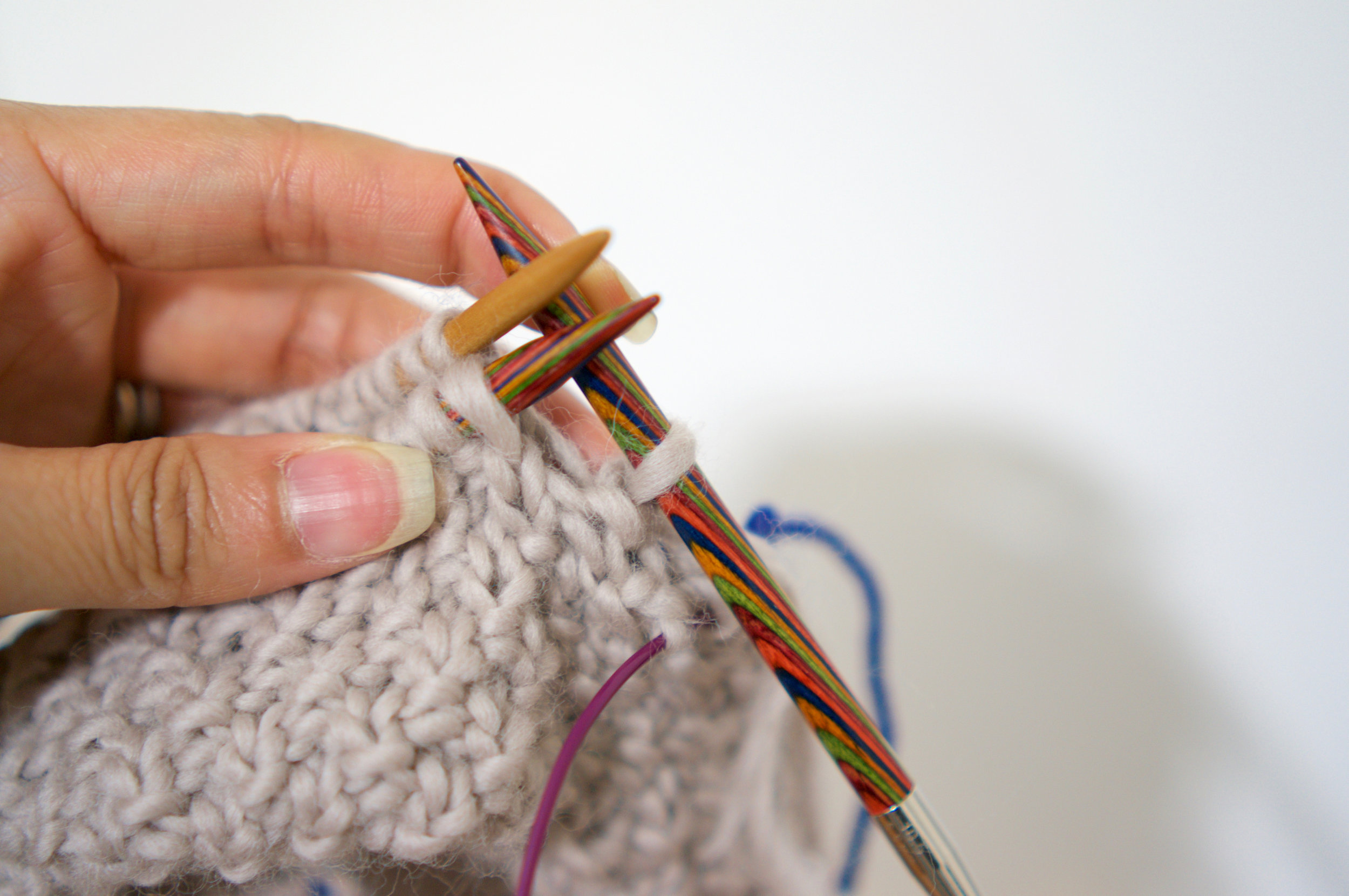Tutorial: Double brim beanies
Double brim beanies are lovely! Until I discovered them, I felt like all of the brims on beanies needed to be made up of ribbing. With double brims, though, you can use any stitch you want without the ends curling up, and they create a nice thick fabric so they stay snug even without being ribbed.
To begin a double brim beanie, decide on your stitch pattern, how many sts you’ll need and how long you want the brim to be.
Cast on in the round using a circular needle and a provisional cast on, mark the first st of the CO with a removable marker, and work the brim until it’s as long as you’d like it to be. Then work a row of purl sts. These are are optional, but they help keep the bottom edge of the brim neat. Work the same number of rows as you did before the purl row.
Place the a quarter of the sts of the provisional cast on to a spare DPN. Remove the stitch marker and any waste yarn used for the provisional cast on from these sts.
Fold the brim along the row of purl sts so the sts on the DPN are on the inside of the round, behind the live sts. Line them up so the first stitch on the DPN is behind the first st of the round.
You will now knit the first stitches on both needles together.
Step 1. Insert the right needle of your circular needles into the first stitch on the front needle, then into the first stitch on the DPN.
Step 2. Wrap the yarn around the right needle as if to knit.
Step 3. Pull the yarn forward through both stitches.
Step 4. Drop the first stitch off both left hand needles. You have completed one stitch.
Repeat steps 1-4 for the remaining pairs of stitches.
Place the next batch of stitches of the provisional cast on onto the DPN, and repeat the process. Continue until all stitches have been knit together. Before knitting the last few sts closed, make sure the tail of your CO is tucked into the inside of the double brim - no need to weave it in to your work.
And you’re done! Now knit the body of the hat however you like, and you’ll have a beautiful snug double brim beanie.






